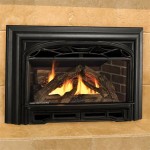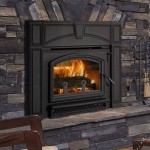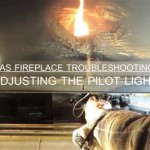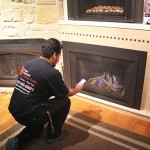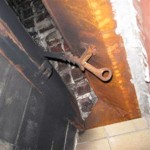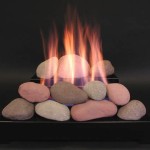Gas Fireplace Smells Like Propane: Identifying the Cause and Ensuring Safety
A gas fireplace is a convenient and efficient way to add warmth and ambiance to a home. However, the presence of a propane smell emanating from the fireplace raises immediate safety concerns that demand prompt attention and investigation. This article aims to provide a comprehensive understanding of the potential causes behind a propane smell from a gas fireplace, detailing the steps required to identify the source of the problem and outlining the necessary safety measures to be taken.
It's crucial to emphasize that any perceived odor of propane should be treated seriously. Propane is naturally odorless, and a chemical odorant called mercaptan is added during processing to make leaks detectable. This distinctive rotten egg or sulfur-like smell serves as a warning sign indicating the potential presence of a gas leak. Ignoring this smell could lead to a hazardous situation, including fire or explosion.
Understanding the Role of Propane in Gas Fireplaces
Gas fireplaces are designed to burn either natural gas or propane. While both fuels serve the same purpose, their chemical compositions and supply methods differ. Propane, also known as liquified petroleum gas (LPG), is stored under pressure in a tank located outside the house. It is then delivered to the fireplace through a series of pipes and regulators. The design of the fireplace’s burner and gas valve system is critical, ensuring the controlled and efficient combustion of propane. Any disruption in this system, from the tank to the burner, can lead to unburnt propane escaping and causing an odor.
One common misconception is that a faint, temporary smell of propane upon initial ignition of the fireplace is normal. While a very brief, trace amount of odor might be acceptable, a persistent or strong propane smell is always indicative of a problem. It is essential to differentiate between a fleeting odor and a lingering one. Proper combustion should convert nearly all of the propane into carbon dioxide and water vapor, minimizing any residual odor.
Therefore, understanding the pathway of propane from the tank to the fireplace is the first step in diagnosing any potential leak. This pathway includes the external tank, the regulator, the buried or exposed piping, the connections at the fireplace, the gas valve, and ultimately, the burner itself. Each of these components represents a potential point of failure and should be considered during the inspection.
Identifying Potential Sources of the Propane Smell
Pinpointing the exact source of the propane smell is crucial for resolving the issue safely and effectively. A methodical approach is required, starting with the most common and easily addressable causes and progressing to more complex possibilities. Several factors can contribute to the detection of propane odor, and understanding each will assist in a thorough examination. Here are several common causes:
- Loose Connections: The gas piping system consists of numerous connections, including threaded joints and fittings. Over time, these connections can loosen due to vibration, temperature changes, or physical stress. A loose connection allows small amounts of propane to escape, resulting in a noticeable odor. These locations include connections at the propane tank, the regulator, any unions in the piping, connections at the gas valve inside the fireplace itself, and the fitting where the gas line connects to the burner within the fireplace.
- Faulty Regulator: The gas regulator is responsible for maintaining a constant pressure of propane as it flows from the tank to the fireplace. A malfunctioning regulator can either allow too much gas to flow, leading to incomplete combustion and a propane smell, or it can leak gas directly from the regulator itself. Regulator failure can stem from age, corrosion, or internal damage.
- Damaged Gas Line: The gas line, whether it is made of copper, steel, or flexible gas tubing, can be susceptible to damage. Issues like corrosion, cracks, or punctures can occur, particularly in areas exposed to the elements or physical impact. Even small damages can result in propane leakage. Underground lines are especially vulnerable to corrosion and shifting ground conditions.
- Malfunctioning Gas Valve: Inside the fireplace, the gas valve controls the flow of propane to the burner. If the valve is not sealing properly, it may allow small amounts of gas to leak even when the fireplace is turned off. A faulty gas valve often requires replacement.
- Incomplete Combustion: Even with a properly functioning system, incomplete combustion of propane can produce unburnt gas and a lingering smell. This can be caused by insufficient oxygen supply to the burner, a dirty burner, or a malfunctioning air shutter that controls the air-fuel mixture. The presence of soot or excessive carbon buildup around the burner is also an indicator of incomplete combustion.
- Spiders and Insects: Surprisingly, spiders and other insects can build nests within the gas orifices and burner tubes. These nests obstruct the flow of gas and air, leading to incomplete combustion and a propane smell. Regular cleaning and inspection of the burner assembly are necessary to prevent this issue.
- Propane Tank Issues: The propane tank itself can be a source of leaks, especially around the valve connection or pressure relief valve. Overfilling the tank or exposure to extreme temperature variations can also cause the pressure relief valve to release small amounts of propane.
To effectively diagnose the source, start by visually inspecting all accessible connections and components. Use a soapy water solution (mix dish soap with water in a spray bottle) to test for leaks. Spray the solution onto connections and look for bubbles, which indicate escaping gas. Pay close attention to the regulator, gas valve, and any connections near the fireplace. Be sure to check the propane tank and its immediate connections as well. If any bubbles are observed, immediately shut off the gas supply and contact a qualified technician.
Safety Measures to Take When Detecting a Propane Smell
The prompt identification and elimination of propane leaks are crucial for safety. When a propane smell is detected, immediate action is required to mitigate potential hazards. The following steps should be taken:
- Extinguish All Flames and Ignition Sources: Immediately extinguish any open flames, including candles, and avoid using electronic devices or switches. Any spark can ignite the propane and cause an explosion. Do not turn on or off any lights, appliances, or electronic devices until the leak has been resolved.
- Evacuate the Area: If the propane smell is strong or persistent, evacuate the immediate area, including the house, and move to a safe distance. Ensure that everyone in the building is aware of the situation and evacuates calmly.
- Shut Off the Gas Supply: If it is safe to do so, locate the main gas shut-off valve at the propane tank and turn it off. This will stop the flow of propane to the fireplace and potentially reduce the severity of the leak. Make sure you know the location of the shut-off valve beforehand.
- Contact a Qualified Technician or Fire Department: Contact a qualified HVAC technician or the fire department from a safe location. They have the expertise and equipment to locate the leak, assess the situation, and make the necessary repairs. Do not attempt to repair the leak yourself unless you are a trained professional.
- Ventilate the Area: Once the gas supply has been shut off and the area has been evacuated, ventilate the building by opening windows and doors. This will help to dissipate any accumulated propane gas and reduce the risk of ignition.
- Do Not Re-enter Until Cleared: Do not re-enter the building until the leak has been located, repaired, and the area has been deemed safe by a qualified professional. They will use gas detection equipment to ensure that there is no residual propane present.
Following these steps is paramount for ensuring the safety of yourself and others. It is always better to err on the side of caution when dealing with a potential gas leak. Professional assistance is necessary to identify and repair the leak, preventing further risk of fire or explosion.
Regular maintenance of the gas fireplace and propane system is essential for preventing leaks and ensuring safe operation. Schedule annual inspections by a qualified technician to check for any potential problems, such as loose connections, corrosion, or malfunctioning components. Cleaning the burner assembly regularly, and checking for obstruction, can also help to prevent incomplete combustion and propane smells. By taking these preventative measures, homeowners can enjoy the benefits of a gas fireplace without jeopardizing their safety.

Here S Why Your Gas Fireplace Stinks Full Service Chimney

Here S Why Your Gas Fireplace Stinks Full Service Chimney

How To Make A Gas Fireplace More Like Wood Burning One Ehow

Here S Why Your Gas Fireplace Stinks Full Service Chimney

Why Your Gas Fireplace Stinks Chimney Experts

Propane Fireplace Maintenance Premier Companies

Vent Free Fireplace Odor

Reasons Your Gas Fireplace Isn T Working Experts

Why Does My Gas Fireplace Smell Like Kerosene Hunker

Ventless Gas Fireplace Propane

